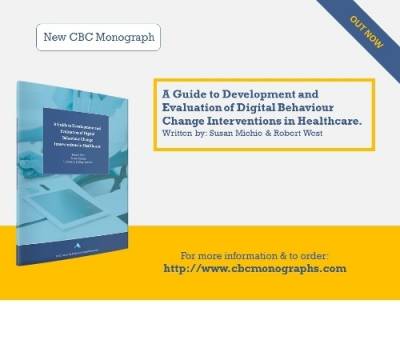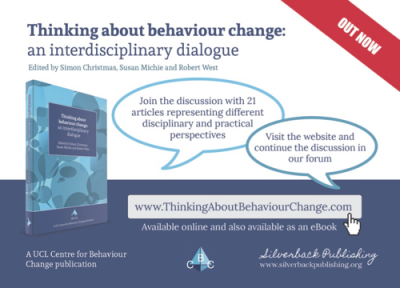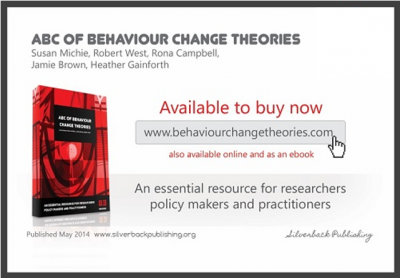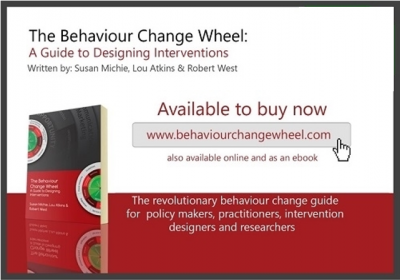24 & 25 February 2016
Senate House, Malet Street, London, WC1E 7HU
- Programme
-
- Click here for the conference programme: Programme [pdf]
- Conference Presentations
-
Below you can download pdf versions of some of the presentations from this year's conference. Presentations are ordered alphabetically by speaker name.
Margaret Allman-Farinelli (University of Sydney)
Maintenance of behaviour change after a 12-week mHealth lifestyle programme for young adults.
Emma Beard (University College London)
Assessing the efficacy of mobile phone interventions using randomised controlled trials: issues and their solutions.
Dominik Beste (University College London)
Improving care and outcomes in adolescent arthritis through patient input, telemonitoring, and personalised feedback.
Fiona Beyer (Newcastle University)
Acceptability of and engagement with digital interventions for reducing hazardous or harmful alcohol consumption in community-dwelling populations: a systematic review.
Luca Canzian (University of Birmingham)
From Mobile Phone Monitoring of Depressive States using GPS Traces Analysis to Data-Driven BehaviourChange Interventions.
Stephanie Dugdale (Breaking Free Online)
A comprehensive, multi-level investigation of the implementation of a novel digital substance misuse intervention, Breaking Free Online: conceptualising implementation processes within services using the MRC framework and health psychology theory.
Elizabeth Edwards (London School of Medicine & Dentistry)
Gamificationfor health promotion in smartphone apps: systematic review of behaviourchange techniques.
Sarah Elison (Breaking Free Online)
Mixed-methods evaluation of the Breaking Free Online (Health and Justice) treatment and recovery programme for substance misuse in prisons.
Emily Fulton (Coventry University)
A digital intervention to increase motivation and access to NHS Stop Smoking Services: Applying the Behaviour Change Wheel to develop the 'Stop-app'.
Using smartphones to reduce harmful drinking
Theory content of digital interventions for reducing alcohol consumption: a systematic review
Cindy Gray (University of Glasgow)
MyCity: Glasgow - how can a mobile app based game increase physical activity in the context of a mass spectator sporting event?
Amy Hardy (King's College London) / Anna Wojdecka (Helen Hamlyn Centre for Design)
Designing the future of talking therapy: Using digital health to improve outcomes in psychosis
Hannah Jennings (University College London)
Digital Bangladesh: Using Formative Research to Develop Phone Messages for the Prevention and Control of Diabetes in Rural Bangladesh.
Chris Keyworth (University of Manchester)
Healthcare professional behaviour change using technological supports: A realist literature review
Grigorios Kotronoulas (University of Surrey)
Enabling symptom self-management via use of an electronic patient-reported outcomes (ePRO) system to increase patient self-efficacy during chemotherapy treatment.
Suvi Määttä (Folkhälsan Research Centre)
User experiences of wearable activity monitor among 3-6-year old preschool children -Are children willing to wear monitor 7 days 24 hours per day?
Marta Marques (University of Lisbon)
Designing evidence and theory-based ICT tools for weight loss maintenance: The H2020 NoHoW Toolkit
Anne Martin (University of Edinburgh)
Beyond the novelty effect: The role of in-game challenges, rewards and choices for long-term motivation to improve obesity-related health behaviours in adolescents.
Machine Learning for Digital Health.
Aileen McGloin (Safefood Ireland)
'Babies know the Facts about Folic': A behavioral Change Campaign utilizing Digital and Social Media.
Joanna Milward (King's College London)
Developing an app to reduce harmful drinking in young adults: A user perspective.
Sorcha Moore (Prescot Medical Centre)
Fighting "zombie" health apps through K-Factor virality and other mobile gaming techniques.
Heather Morgan (University of Aberdeen)
@selfhealthtech: Using self-administered health monitoring technologies to support the self-management of long-term conditions: what about behaviour change?
Dr Cecily Morrison - Microsoft Research Cambridge
Beyond the quantified body: designing ubiquitous sensing systems for healthcare.
Nikki Newhouse (University College London)
Exploring the potential of digital resources as a source of social support in first time pregnancy.
Emma Norris (University College London)
Development of Virtual Traveller: A behaviour change intervention to increase physical activity during primary school lessons.
Kingshuk Pal (University College London)
Integrating data and theory to create an online self-management programme for adults with type 2 diabetes: HeLP-Diabetes.
Veronica Reynolds (Intelligent Health)
Beat the Street. A city-wide physical activity intervention to get a whole population active using RFID/NFC technology.
Harald Schjelderup-Lund (Changetech)
The development of easychange.
Katarzyna Stawarz (University College London)
Understanding the role of contextual cues in supporting the formation of medication-taking habitsKatarzyna.
Clare Stevens (University College London)
Evaluating the Risk Acceptance Ladder (RAL) as a basis for targeting communication aimed at prompting attempts to improve health related behavioursA pilot randomised controlled trial.
Diedre Walsh (Dublin City University)
Barriers and motivators in engaging with technology-enabled cardiac rehabilitation: A patient and health professional perspective.
Carolyn Wilson (University of Salford)
VitruCare: Using digital health to overcome the bounded willpower of patients with long term conditions.
Panel discussion: The role of digital health in reducing stigma of mental health
The UCL Centre for Behaviour Change held its second
Behaviour Change conference, 'Digital Health and Wellbeing' in February 2016. The
conference was hosted in association with the new UCL Institute of
Digital Health. It was a unique 2-day event bringing the
science of behaviour change, health, and technology expertise across
disciplines to all those interested in developing and evaluating digital
interventions and products.
This conference is part of the UCL Festival of Digital Health
Keynotes
|
[image reference is broken]
|
Prof. John Powell - University of Oxford John is an academic public health physician and health services researcher who has been working in the field of digital health for more than 15 years. He is the joint Editor of the journal Digital Health. His current research interests are in two main areas: evaluations of digital interventions to promote health and well-being, and studying the online sharing of personal experiences of health and health services. |
|
[image reference is broken]
|
Dr. Donna Spruijt-Metz - University of Southern California Donna is Director of the USC mHealth Collaboratory and a Professor of Research in Psychology. Her interests include using mobile technologies to develop data sets that combine sensor and self-report data to tackle childhood obesity levels. She has a deep interest in harnessing mobile health and new media modalities to bring researchers and researched systems into interaction. |
|
[image reference is broken]
|
Dr. Cecily Morrison - Microsoft Research Cambridge Cecily is a researcher in Human-Computer Interaction with an interest in developing novel technologies to enable health and well-being in the broadest sense. Her recent work has focused on the development of an interactive application to support the clinical assessment of Multiple Sclerosis using depth-sensing computer visions and novel machine learning techniques. |
Sponsorship
We are grateful for our sponsor Bupa for supporting this event.
CBC Conference 2015:
The first CBC Conference in February 2015 was a resounding success with over 330 researchers, practitioners and technology developers from across eight countries. 50 speakers presented a wide range of work and ideas, including developing digital interventions using theory, gamification, user engagement and sensor technologies. The programme from the first conference can be viewed here: Full 2015 conference programme
Here's what delegates from CBC Conference 2015 had to say:
Be the first to hear about any new announcements:
Join our Mailing list and follow us on Twitter: @UCLBehaveChange #CBCConf2016
 Close
Close





